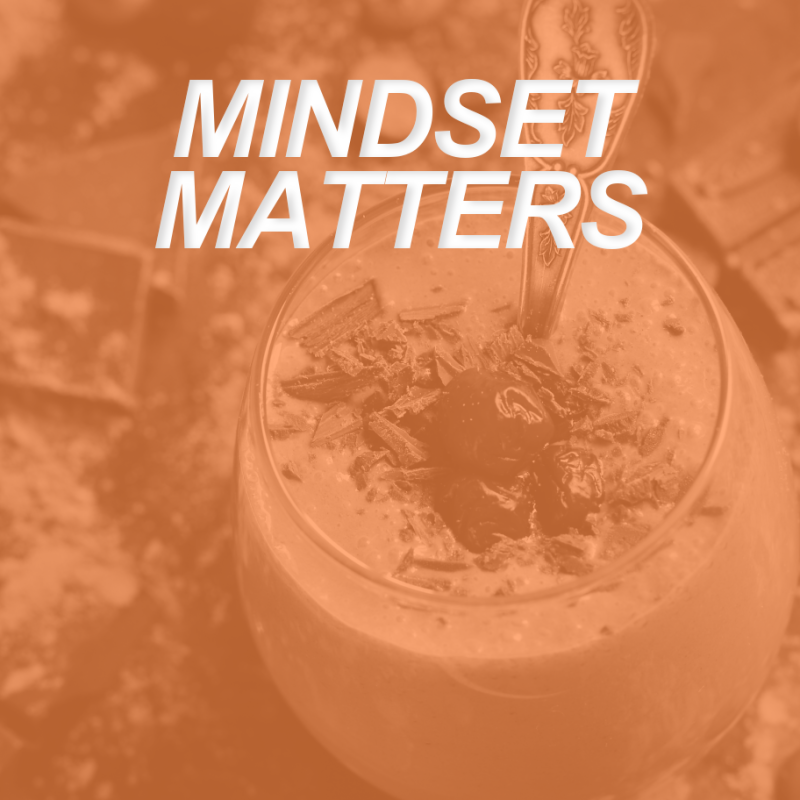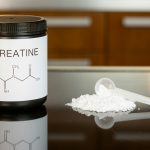
Preparing an effective training session requires carefully considering movement patterns, rep counts, number of sets, and other physical considerations; however, establishing a healthy and positive mindset should also be a priority for personal training clients.
Recent research has revealed that the way individuals think has a significant impact on both their physiological systems, as well as their behaviors. By examining these studies and either presenting the evidence to clients – or implementing the techniques used in the research – trainers can improve positive health outcomes in their clients without requiring any additional physical exertion.
“Free” Exercise
In a fascinating paper from 2007 entitled, “Mind-Set Matters: Exercise and the Placebo Effect”, psychologists Alia Crum and Ellen Langer explore the consequences of explaining to an individual that their daily activities are a valuable form of exercise. This study followed two sets of hotel room cleaners who did (or did not) get presented with scientific evidence that their everyday work routines could be considered effective physical activity. Those in the group who were informed about the active value of their exertion showed a “decrease in weight, blood pressure, body fat, waist-to-hip ratio, and body mass index” compared to the control group after just a 4-week period3.
To be clear, this result is extremely significant!
As Crum and Langer point out, without any other significant change to their daily habits, the pure knowledge that their standard movement practices were a form of exercise had positive health effects on the workers. Can the way in which an individual thinks really affect the actual physiological processes taking place in their body? Science would indicate yes, it can!
A Mindset for Indulgence
A 2011 study also led by Alia Crum and co-authored with William Corbin, Kelly Brownell, and Peter Salovey, reveals another intriguing power of our mindsets. The research team investigated how the description of a milkshake impacted an individual’s satiation. Subjects were given an approximately 380-calorie milkshake but were either told that it was a 620-calorie “indulgent” shake, or that it was a 140-calorie “sensible” shake. In the two different conditions, opposite physiological reactions and contrasting feelings of satiation resulted, despite the consumption of an identical set of nutrients.
Individuals who consumed the “indulgent” shake reported higher feelings of satiation. Although this metric might be considered subjective, additional testing confirmed a corresponding physiological response. The gut peptide ghrelin is “an essential indicator of energy insufficiency” and a component in the sensation of hunger that motivates consumption 2. In members of the “indulgent” shake group, there was a dramatic decrease in ghrelin after eating compared to the “sensible” case.
These outcomes are enormously noteworthy, demonstrating that the way in which an individual perceives the food they are consuming can have a direct physical consequence on their body.

Positive Mindset for Success
While both the aforementioned studies consider the impact of single events – daily exercise and nutrient consumption – additional research has shown that a generally positive mindset relating to physical activity and nutritional eating promote an overall increase in participation and a higher emphasis on executing those healthy behaviors1.
Other research indicates that offering subjects a “low-and-liberal” recommendation of what qualified as exercise led participants to “adopt the mindset that their physical activity was more adequate, which in turn predicted greater engagement in physical activity” 5.
These studies demonstrate that there exists some level of (affectable) connection between our thought processes – or mindsets – and our physiological systems.
Now that a relationship between mind and body has been established and proven, trainers should ask: how can this information be leveraged to promote positive health outcomes in clients? Here are some recommendations based on the discussed research:
- The first study examined demonstrates the value of shifting a client’s understanding of the definitions of “exercise”. Encourage the belief that any physical activity, no matter how minor or routine, is beneficial exercise that will promote superior health outcomes.
- The next set of findings reveals that perceiving nourishment as more satiating convinces the body to react accordingly. Using language such as “small”, “snack”, or “sensible” to self-describe our consumption may leave individuals feeling unsatisfied and hungry, causing them to consume additional calories (potentially leading to an increase in weight and associated negative health consequences). When discussing meals with your clients, use words like “rich”, “meal”, or “indulgent” to help reduce feelings of hunger and assist in managing caloric intake.
- When training and communicating with clients, it is critical to create an uplifting, fun, and compassionate environment around healthy behaviors like exercise and nutrition. The promotion of an encouraging atmosphere around these activities will increase the chances of long-term engagement in those practices by the client. Use positive and constructive language to help build and reinforce beneficial mindsets.
- Being overly strict regarding physical activity recommendations with clients can lead to struggles in meeting goals, ultimately reducing overall engagement. Individuals who regularly hit their targets are likely to feel encouraged, and thereby more apt to continue their programming. Consider carefully the manner in which you frame goals and objectives, tailoring appropriately to your client’s lifestyle and motivation.
Equipped with this new and profound knowledge on the physiological impacts of thought processes, trainers should seek out additional research on proven methods, and look for opportunities to promote a healthy mindset among their clients to facilitate positive health outcomes!
References
1.Boles DZ, DeSousa M, Turnwald BP, Horii RI, Duarte T, Zahrt OH, Markus HR, Crum AJ. Can Exercising and Eating Healthy Be Fun and Indulgent Instead of Boring and Depriving? Targeting Mindsets About the Process of Engaging in Healthy Behaviors. Front Psychol. 2021 Oct 5;12:745950. doi: 10.3389/fpsyg.2021.745950. PMID: 34712186; PMCID: PMC8546637.
2. Crum AJ, Corbin WR, Brownell KD, Salovey P. Mind over milkshakes: mindsets, not just nutrients, determine ghrelin response. Health Psychol. 2011 Jul;30(4):424-9; discussion 430-1. doi: 10.1037/a0023467. PMID: 21574706.
3. Crum AJ, Langer EJ. Mind-Set Matters: Exercise and the Placebo Effect. Psychological Science. 2007;18(2):165-171. doi:10.1111/j.1467-9280.2007.01867.x
4. “The Power of the Placebo Effect.” Harvard Health, 13 Dec. 2021, https://www.health.harvard.edu/mental-health/the-power-of-the-placebo-effect.
5. Zahrt, Octavia & Crum, Alia. (2019). Effects of Physical Activity Recommendations on Mindset, Behavior and Perceived Health. Preventive Medicine Reports. 17. 101027. 10.1016/j.pmedr.2019.101027.







